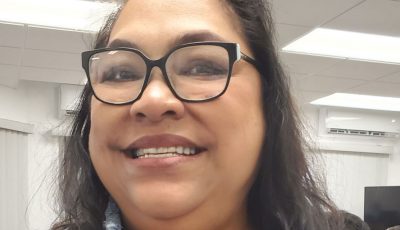‘For your happy, for your peaceful’
The age of the keyboard certainly hasn’t spared Saipan, and every inhabitable nook of the Earth now lives in the shadow of QWERTY. I spend my share of time there, too. I am, however, not willing to give up the world of pen and paper. In fact, the more I see the side effects of a screen-based life on people, the more I appreciate the simple world of writing by hand.
The handwriting club doesn’t appear to have many members left standing. I’m therefore grateful that the Japanese share my penchant for paper. Most of my favorite pens, pencils, and notebooks come from Japanese companies. I hope the Japanese will always be able to serve this realm, since it must be an ever-shrinking niche in our cyber age.
Meanwhile, the world turns, and the news cycle turns with it. Let’s consider some news stories. An Aug. 30, 2014 article on the Psychology Today website (“Handwritten Notes Lead to Better Learning”) cites a study that says that students who take handwritten notes learn the material better than students who type their notes on computers.
I’ve seen several references to this notion, although I don’t know if they’re rooted in the same study or in a number of studies. I won’t sweat the distinction, though, since I was buying the concept before it was on the table for discussion. For one thing, most of my classroom time involved equations, graphs, and diagrams, which are easy and natural to write by hand, but strike me as troublesome on computers.
And even in the world of words and not numbers, I’ve found that handwriting is an effective way to digest and organize incoming information, instead of merely recording it with a keyboard.
Yeah, in the computer world, there are fancy ways to address input issues with more refined technology, and there are certainly some ways that I haven’t been exposed to. I’ll still maintain, though, that ink-on-paper has never let me down. It never crashed, never froze, never ran out of batteries, never broke, never became unreadable because it was orphaned by new software, never weighed more than a few ounces, and was never a tempting target for a thief to take.
The news always has a front-burner story about health woes pertaining to the chronic use of high-tech devices. I’m not alarmist about it, since just about anything, no matter how benign, can be overdone. Still, I think that most people would agree that being hunched over an electronic gimcrack all the time is very unnatural, be it a keyboard device or a smartphone.
We don’t have to cherry pick a story here. We’ll just land the latest one to come over the transom. An April 20 article in the (U.K.) Telegraph (“From Text Neck to Blackberry Thumb: the surprising injuries inflicted by your smartphone”) cites various problems that can afflict smartphone users. These include eye problems (including children going cross-eyed), and problems with thumbs, fingers, elbows, hands, and necks.
My guess, tendered from a beach chair and not a laboratory, is that the allure of smartphones probably has a common element with the allure of normal-sized computers. Although the specific health consequences of overuse might be different, the proclivity for overuse exists in both realms. Those glowing screens are irresistible candy for many eyeballs out there. By contrast, as unglamorous as ink-on-paper is, I don’t think I’ve ever seen anyone get addicted to it.
Of course, life is seldom an either/or proposition. Even those of us who can be found composing prose by hand can often be found re-typing the fare into a computer at some point. The end point might be the same, but the path getting there is not. Composing by hand usually demands a more structured approach to outlines, which are frequently diagramed with triangles and rectangles. Yeah, that’s old school, but it can come in handy, especially when writing stuff like advertising copy, which takes a lot of work and a lot of hammering to come across as effortless and natural.
Further contemplating the paper medium, I’ll note that Japanese notebooks come in all sorts of sizes and designs, and they can have some quirky charm.
For example, the notebook in which I’m composing these very words came with the following phrase, in English, embossed on the cover: “For your happy, for your peaceful, I can start one new day with you.”
Hey, some things are just so good they can’t be improved. That sentence is one of them.
So I’ll just toss these words into the QWERTY hopper now, and we’ll call it a day.



























